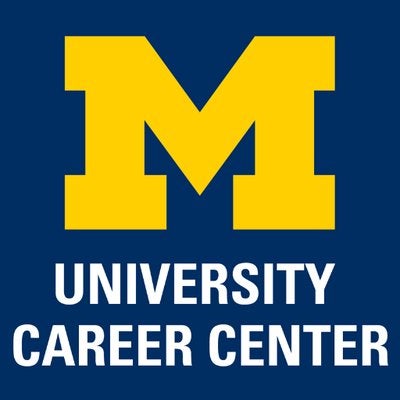By Matthew Woodbury
Dr. Clarence Anthony, a career coach at the University of Michigan Career Center, has a wealth of experience working with humanities doctoral students who are considering and pursuing non-traditional employment.
As experts in their disciplines, Michigan faculty have a good grasp of how to prepare graduate students for roles in the academy. For non-traditional paths, however, most professors have less direct personal experience. How might faculty assist their students interested in non-traditional careers?
Dr. Anthony suggests conversations can start with questions about what aspects of graduate school the student currently enjoys or is looking forward to and what elements are less compelling. This sets the stage for considering types of work (teaching or researching, working independently or as part of a team, pursuing specialized expertise or a diverse range of opportunities) as holistic skills rather than only suited to scholarship in an R1 environment. By focusing on the type of work the student finds meaningful, a mentor can more easily recommend possibilities within the university focused on teaching opportunities, research support, or public engagement.
In addition to the type of work, another goal for career mentoring conversations might include discussion of the working environment. By asking their students to consider where and how they do their best work, faculty mentors can gain a better sense of where their students might thrive. Rather than focusing on a particular job, encouraging reflection about the quality and quantity of what’s interesting can help frame where students see themselves succeeding. Dr. Anthony also stresses that students have external obligations and relationships that might frame how they approach career choices. Lots of travel, for example, could be an exciting prospect for one student while another might need the certainty of a fixed schedule.
Aligning the type of work students are interested in with an environment appropriate for their context helps establish a framework for subsequent conversations about what the student enjoys and is good at. As a 2017 piece by the Modern Language Association suggests, mentoring for non-traditional careers can have its greatest benefit when implemented from the very earliest stages of a doctoral program.
To gain further particulars about jobs, Dr. Anthony suggests participating in informational interviews where a student finds somebody whose work they think is interesting and reaches out to them through an email or phone call. Since they’re short, often 15-30 minutes, students should be intentional about what they’d like to learn from the interview and arrive prepared with questions about the job. If contact information is not available on a webpage, services liked LinkedIn or the University of Michigan’s networking platform UCAN are options for making connections.
Rackham also offers a range of skills-based workshops as part of the graduate school’s professional and academic development initiatives. Opportunities include making TED-style presentations, advice on navigating LGBTQ identities in the academy, and activities promoting personal well-being. These university resources can be a way for students at any stage of their doctoral program to build their skill set. Longer-term programs in digital teaching, diversity equity and inclusion, and professional leadership are relevant to a wide range of humanities disciplines and also build concrete skills that translate well to a resume. Dr. Anthony also recommends experiential learning through an internship or a multi-day immersion experience. These opportunities can confirm or redirect a student’s interest and might also establish connections to organizations outside of the university.
Faculty advisers can also suggest looking for mentorship outside of the home department to build a broader perspective. Whether gained through coursework to fulfill a cognate requirement, from a dissertation committee member in another field, or from a certificate program, mentors can encourage their students to ask other faculty and staff about their work and experience. By taking advantage of the wealth of human resources available on campus students can enhance their research, teaching, and professional profiles.
As a resource, Dr. Anthony recommends mentors suggest the Versatile PhD as a first port-of-call. There, students can find examples of resumes and CVs targeted for particular jobs. These documents are a good way to see what’s out there in how others have thought about and marketed their skills for a wide variety of non-traditional roles. Launched in November 2017, the Imagine PhD is a resource for career exploration and planning in the humanities and social sciences that adopts a comprehensive approach for the student’s entire program.
Finally, if you’re stuck about where to begin, a simple but important question faculty can ask is “How can I help you?”
Have strategies, ideas, or resources for mentoring graduate students in the humanities? Drop us a line at rackhumanitiesphdproj at umich dot edu



